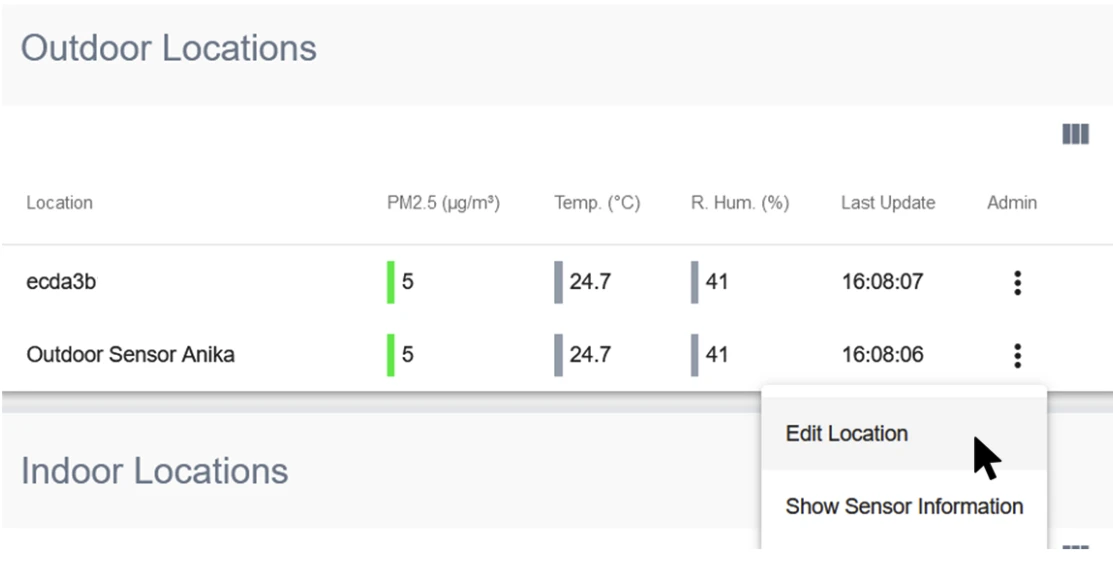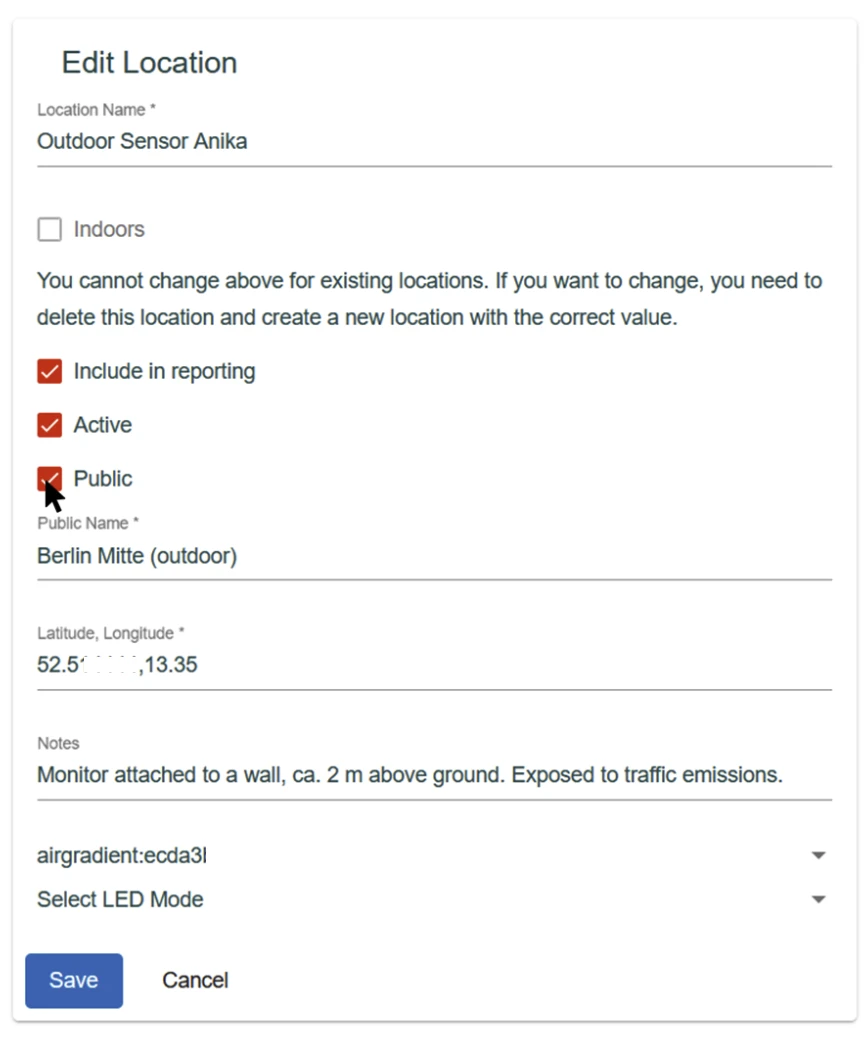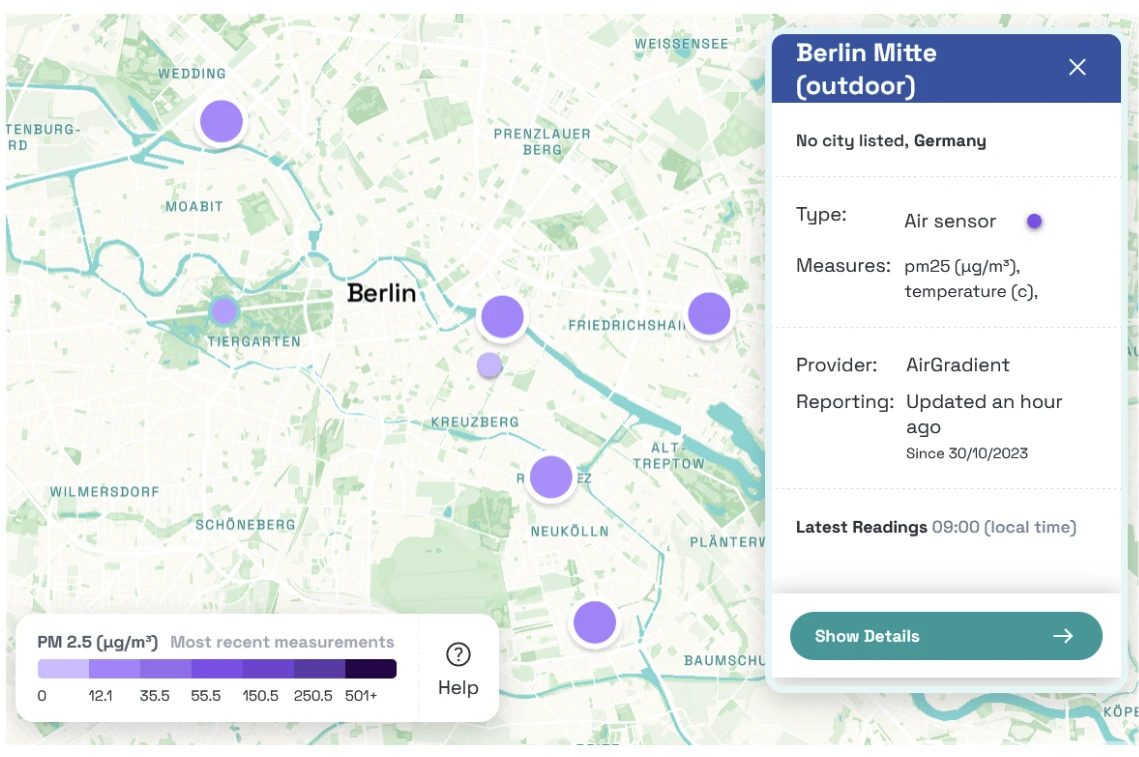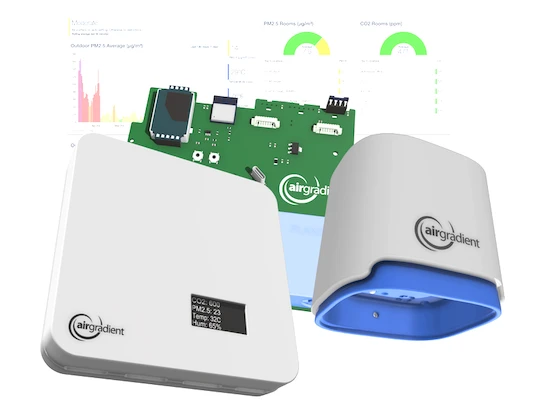Here’s how you, as an individual, can help provide air quality data that’s used for research!
OpenAQ
A nonprofit organization called OpenAQ is working hard to provide universal access to air quality data worldwide. They gather the data from various sources, harmonize them (into the same format) and offer the final data to download for any organisation or private person.

The data is used for research, to raise awareness, and to develop strategies to improve the quality of the air we breathe.
For example, Christoph A. Keller and his team from the NASA Global Modeling and Assimilation Office used OpenAQ data to examine the effect of COVID-19 restrictions on global NO2 and O3 concentrations. Dr. Keller emphasized that the award-winning research article they published would not have been possible without OpenAQ!
Everyone can support them!
AirGradient has set up a cooperation with OpenAQ which allows every user to share their data with OpenAQ in just one minute:
- Find the monitor you want to share with OpenAQ on the Dashboard. Click on the three dots below “Admin” and click on “Edit location”.

- Check the box “Public” and add some information about the sensor. OpenAQ will use the public name and the coordinates to plot your sensor onto their map.

The upload takes a few hours and then you will find your sensor on the OpenAQ Website. Now everyone has access to the air pollution concentrations you measure!

Note that AirGradient is automatically written as a provider. This way it is clear which type of sensor the data originate from (standardised monitoring station, miniatured sensor, etc.).
Three tips to ensure good data quality
To support the global air quality community in the best way possible, consider the following tips to ensure that the data you share are of good quality:
- OpenAQ focuses on outdoor air quality, so only share air quality data from monitors that are placed outdoors.
- Place the monitor away from any local emission sources e.g. barbeques, car garages, stoves, candles, or air condition outlets.
- Add information to the type of environment (e.g. urban, suburban, rural, traffic) to the public name.
Thank you for helping to make the world a better place!
But what about data privacy?
If you are concerned about your privacy, you can give approximate coordinates or slightly change them. But try to give coordinates which are in the same environmental conditions as the ones you monitor is exposed to (e.g. a parallel street with a similar amount of traffic). Note that (apart from the coordinates) the measurement data are fully anonymous. The name (or any other details) of the sensor owner is not shared with OpenAQ.
Air quality map to raise awareness
While OpenAQ already does a fantastic job in visualising air pollution data on a global scale, AirGradient is currently also developing a map application to share and visualise your measurement data. Here, the focus lies on awareness raising and promoting local actors that fight air pollution: Often, there is a lack of acknowledgement for the workers “on the field” who collect air quality data used for research. Our map will give these local workers the opportunity to spotlight their organisations and projects, providing them with the attention they deserve and hopefully helping them to win more supporters for their cause.
